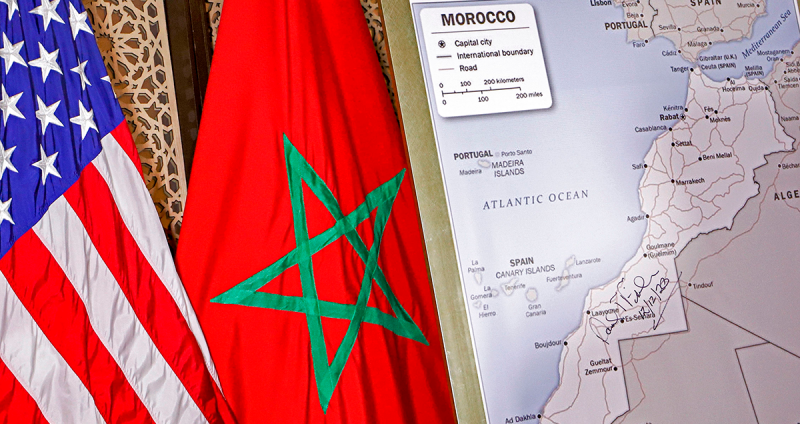20 Years Later, US-Morocco Free Trade Pact Yields Mixed Results

Doha - The US-Morocco Free Trade Agreement (FTA), signed in 2004, has more than quadrupled bilateral trade over the past two decades but has not delivered the expected economic benefits, according to a new analysis by the Washington Institute for Near East Policy.
Total trade between the two countries grew from $1.3 billion in 2006 to $5.5 billion in 2023 under the trade pact. However, Morocco’s trade deficit with the US ballooned from under $1 billion to around $1.8 billion over the same period.
“A persistent — even growing — trade imbalance indicates that the [FTA’s] full economic potential is not being fully realized,” wrote Sabina Henneberg, a Soref Fellow at the Washington Institute.
Morocco’s real GDP has more than doubled from $63 billion in 2005 to $131 billion in 2022, but this growth appears to be driven more by factors like good rainfall boosting agriculture and Morocco’s emergence as a “nearshoring” manufacturing hub rather than the trade agreement itself.
Traditional Moroccan exports to the US, like textiles, have seen only modest growth under the FTA. In 2021, textiles made up 12% of Moroccan exports to the US, up from 8% in 2008. In contrast, fertilizer exports surged from 7% to 23%.
The analysis suggests the trade pact has served political and strategic interests more than economic ones. It has instead helped the US reward Morocco’s counterterrorism efforts and maintain robust ties amid political shifts.
“On balance, the [FTA] appears to have served political and strategic interests more than economic ones,” Henneberg noted. “Given the strategic sectors Morocco has chosen to develop, the agreement may never truly fulfill its potential.”
Still, the US can leverage the agreement to boost Morocco’s growth, the report argues. It recommends the US support job-creating industries like light manufacturing, identify investments that spur environmental and labor reforms, and expand English-language training within Morocco.
Amid concerns about the heavy role of the state in some Moroccan industries and an education system not yet producing a high-skilled workforce, the report contends that nudging the country toward further market-opening reforms through the FTA framework remains a work in progress.

